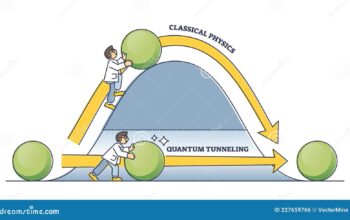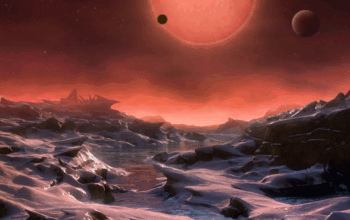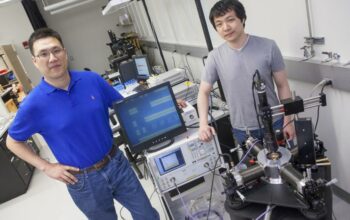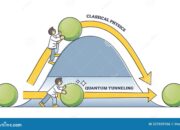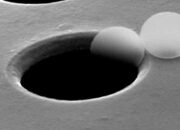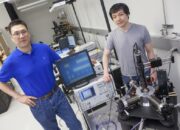In the ever-evolving landscape of scientific inquiry, the question of whether fundamental physics has reached a standstill is both provocative and introspective. It challenges the very essence of progress in a discipline renowned for its audacity. As we embark on this exploration, let us ponder: is it possible that we have entered a serene phase, one marked not by unyielding advancement, but by contemplation and reflection on the established paradigms of our universe?
The past century has seen monumental advancements in physics, from the elucidation of quantum mechanics to the grand tapestry of general relativity. Yet, despite these revolutionary breakthroughs, recent years have prompted some scholars to wonder if the field is, in fact, enveloped in a stagnation of sorts. This contemplation requires us to examine the intricate nature of scientific progress itself, which is often not linear but rather a complex interplay of theory, experimentation, and validation.
To grapple with the concept of stagnation in fundamental physics, we must first delineate what constitutes ‘fundamental physics.’ This branch of scientific inquiry seeks to understand the underlying principles governing the universe, encapsulated in the laws of nature that describe the behavior of matter and energy. The pursuit of a unified theory, one that seamlessly integrates the principles of quantum mechanics with general relativity, has eluded physicists for decades. This ambitious quest, often referred to as the search for a “theory of everything,” fuels the discourse on whether stagnation is present. Are we simply revisiting old theories, or are we on the cusp of new understanding?
One of the central tenets of scientific progress is the formulation of hypotheses and subsequent experimentation. The Standard Model of particle physics, although a remarkable achievement, has remitted multiple unanswered questions, including the nature of dark matter and the asymmetry of matter and antimatter in the universe. Have we reached an impasse where experimental verification and theoretical ingenuity must collaborate more synergistically? It’s conceivable that we may require not additional data alone, but innovative experimental frameworks that challenge our current methodologies.
In recent decades, there has been a notable decline in empirical discoveries that could radically adjust our understanding of physics. The large hadron collider, an epitome of modern scientific endeavor, has largely confirmed existing theories rather than unveiling groundbreaking new phenomena. As researchers delve deeper into previously established theories, one might wonder if the high-energy frontier has become a cyclical pursuit of confirmation rather than a quest for genuine discovery. This presents an intellectual challenge: are we compelled to revisit and possibly reinvent the tools at our disposal in the pursuit of knowledge?
Furthermore, theoretical physics faces the daunting challenge of discerning between paradigms that provide rich insights and those that wallow in speculative interpretations devoid of empirical support. The proliferation of string theory has sparked vibrant debates regarding its merits and shortcomings. Proponents argue that its mathematical elegance facilitates a profound comprehension of unobservable dimensions, yet critics admonish that without experimental validation, it teeters on the edge of metaphysics. This dichotomy poses a contemplative inquiry into the essence of scientific inquiry itself: should theoretical physics embrace a more robust empirical framework, or does its strength lie in its ability to explore realms beyond observation?
Moreover, the impact of interdisciplinary approaches cannot be overstated in this debate. Mathematics, computer science, and cosmology increasingly intermingle with fundamental physics, creating hybrid fields like quantum computing and quantum information theory. In this collaborative milieu, are we inadvertently invoking complexities that further confound fundamental understanding? The instantiation of simulation-based research could herald new methodological paradigms, yet one must remain vigilant to ensure that empirical grounding is not sacrificed at the altar of computational elegance.
As we traverse the contours of time, the intersection of philosophical inquiry and scientific exploration becomes increasingly pertinent. The role of thought experiments, once celebrated as quintessential tools for theoretical physicists, has seen diminishing returns in recent decades. This raises an intriguing question: have we become so ensnared in empirical verifiability that we have neglected the power of imagination? The conceptual frameworks that once propelled revolutionary ideas—such as Einstein’s contemplation of the nature of light or Schrödinger’s famous thought experiment—risk being overshadowed by the relentless march towards quantifiable results.
In light of these considerations, the notion of stagnation becomes a multifaceted inquiry rather than a simplistic assertion. Stagnation may manifest not in an absence of discovery but in the preoccupation with consolidating previously established knowledge. The flourishing domain of theoretical inquiry, while fraught with challenges, also presents opportunities for rejuvenation. The potential for a paradigm shift looms on the horizon, beckoning researchers to amalgamate creativity with empirical rigor—to venture where the path is uncertain but ripe with promise.
Consequently, the field of fundamental physics is neither entirely stagnant nor unequivocally dynamic; it exists within a complex tapestry of inquiry, steeped in tradition yet poised for evolution. As scientists continue to grapple with both established theories and burgeoning ideas, the interplay between stagnation and progress will undoubtedly shape the discourse of the coming years. The invitation to explore the nexus of imagination and empirical pursuit is an enduring challenge—one that may ultimately steer the course of future inquiries into the very fabric of reality itself.


